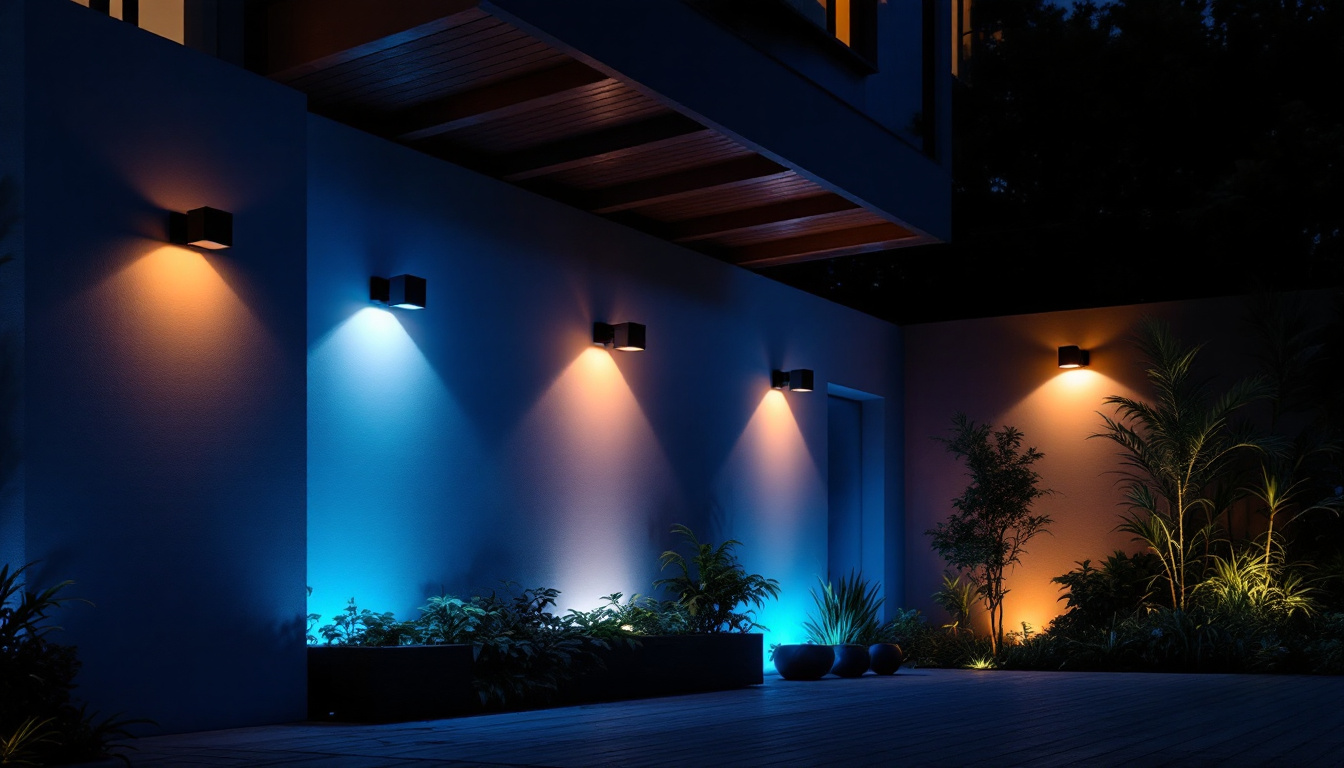
In the ever-evolving world of construction and design, lighting plays a pivotal role in creating ambiance, functionality, and safety. For lighting contractors, understanding the nuances of lighting systems, including the importance of plugs and connections, can significantly enhance their service offerings and client satisfaction. This article explores the benefits that lighting contractors can derive from mastering these elements, ultimately leading to improved project outcomes and business growth.
lighting design is not merely about choosing fixtures; it encompasses a comprehensive understanding of how light interacts with spaces. Proper lighting enhances aesthetics, improves functionality, and increases safety. For lighting contractors, a solid grasp of design principles can set them apart from competitors.
One of the primary objectives of lighting design is to enhance the aesthetic appeal of a space. By strategically placing lights and selecting the right fixtures, contractors can create a mood that resonates with the intended use of the area. Whether it’s a cozy restaurant or a sleek office, the right lighting can transform an ordinary space into an extraordinary one.
Furthermore, understanding color temperature and its impact on perception allows contractors to tailor their designs to meet specific client needs. For instance, warmer tones can create a welcoming atmosphere, while cooler tones may be more suitable for work environments. This knowledge empowers contractors to offer personalized solutions that elevate their projects. Additionally, incorporating dimmable lighting options can provide flexibility, allowing users to adjust the ambiance according to their preferences or the time of day, thus enhancing the overall experience within the space.
Functionality is another critical aspect of lighting design. Effective lighting ensures that spaces are not only visually appealing but also practical for their intended use. For example, in a kitchen, task lighting is essential for food preparation, while ambient lighting sets the overall mood.
Lighting contractors must be adept at designing systems that cater to various activities within a space. This includes understanding the different types of lighting—ambient, task, and accent—and how they can be combined to create a well-rounded lighting scheme. By focusing on functionality, contractors can enhance user experience and satisfaction. Moreover, the integration of smart lighting technology can further optimize functionality, allowing users to control lighting levels and settings through mobile apps or voice commands. This innovative approach not only increases convenience but also promotes energy efficiency, aligning with modern sustainability goals in design.
Beyond the aesthetic and functional aspects, lighting contractors must also have a solid understanding of the electrical components that power lighting systems. This includes knowledge of wiring, circuit loads, and the types of plugs and connectors used in installations. A comprehensive grasp of these elements not only enhances the quality of the work but also ensures that installations are compliant with local codes and regulations, which can vary significantly from one region to another.
Plugs and connectors are essential components in any lighting system. They facilitate the connection between fixtures and power sources, ensuring that lights operate safely and efficiently. For contractors, being knowledgeable about different types of plugs and connectors can prevent installation issues and enhance safety. Understanding the nuances between standard connectors and specialized ones, such as those designed for outdoor or high-voltage applications, is crucial in selecting the right components for specific environments.
Moreover, understanding the specifications of various plugs—such as voltage ratings and compatibility—enables contractors to select the right components for each project. This attention to detail not only ensures compliance with electrical codes but also minimizes the risk of failures or hazards. Additionally, familiarity with the latest advancements in connector technology, such as quick-connect systems or smart connectors that integrate with home automation, can provide contractors with a competitive edge in the market.
Safety is paramount in any electrical installation. Lighting contractors must be aware of the potential hazards associated with improper wiring and connections. Familiarity with safety standards and best practices can help contractors avoid accidents and ensure the longevity of their installations. This includes understanding the importance of grounding, using the correct gauge of wire for the load, and ensuring that all connections are secure and insulated to prevent short circuits or electrical fires.
Additionally, educating clients about the importance of regular maintenance and inspections can further enhance safety. By positioning themselves as knowledgeable professionals, contractors can build trust with clients and establish long-term relationships. Providing clients with guidelines on how to identify potential issues, such as flickering lights or unusual sounds from fixtures, empowers them to take proactive measures. Furthermore, offering maintenance packages or annual check-ups can not only enhance safety but also create additional revenue streams for contractors, fostering a sense of reliability and ongoing support in their client relationships.
As technology advances, so do the tools available to lighting contractors. Embracing new technologies can provide significant advantages in both design and installation processes. From smart lighting systems to advanced design software, the integration of technology can streamline operations and improve outcomes.
Smart lighting solutions are becoming increasingly popular in residential and commercial spaces. These systems allow users to control lighting remotely, adjust brightness, and even change colors through mobile applications or voice commands. For lighting contractors, offering smart lighting solutions can differentiate their services and attract tech-savvy clients.
Moreover, understanding the installation and configuration of smart systems enables contractors to provide comprehensive services. This includes not only the physical installation but also guidance on how to use the technology effectively. As a result, contractors can enhance customer satisfaction and loyalty. Additionally, the integration of smart lighting with other home automation systems, such as security and climate control, can create a seamless user experience. This holistic approach not only appeals to clients looking for convenience but also opens up opportunities for contractors to expand their service offerings into the realm of home automation.
Modern design software has revolutionized the way lighting contractors approach projects. These tools allow for accurate modeling of lighting designs, enabling contractors to visualize the end result before installation. By utilizing design software, contractors can experiment with different layouts, fixture types, and lighting effects.
This capability not only saves time but also reduces the likelihood of costly mistakes during installation. Clients can see realistic renderings of their spaces, making it easier to communicate ideas and preferences. By leveraging technology in this way, contractors can elevate their professionalism and service quality. Furthermore, many of these software solutions now incorporate features such as energy efficiency analysis and compliance checks with local building codes, allowing contractors to provide clients with informed recommendations that align with sustainability goals. This not only enhances the value of the service provided but also positions contractors as knowledgeable partners in creating environmentally responsible lighting solutions.
In the competitive landscape of lighting contracting, building strong relationships with clients is essential for long-term success. Effective communication, transparency, and a focus on client needs can foster trust and loyalty.
Clear communication is critical throughout the project lifecycle. From the initial consultation to the final walkthrough, contractors should keep clients informed about progress, challenges, and any changes to the original plan. This transparency not only helps manage expectations but also builds confidence in the contractor’s expertise.
Additionally, actively listening to client feedback and preferences can lead to more tailored solutions. By involving clients in the decision-making process, contractors can create a sense of ownership and satisfaction, resulting in positive referrals and repeat business.
Providing post-installation support is another way to strengthen client relationships. Offering maintenance services, troubleshooting assistance, and follow-up consultations can demonstrate commitment to quality and customer care. This ongoing support can differentiate a contractor from competitors who may not prioritize after-sales service.
Moreover, educating clients about the proper use and maintenance of their lighting systems can empower them and enhance their overall experience. By positioning themselves as trusted advisors, contractors can ensure that clients feel valued long after the project is completed.
The lighting industry is constantly evolving, with new trends, technologies, and regulations emerging regularly. For lighting contractors, staying informed about these changes is crucial for maintaining a competitive edge.
Investing in continuing education and training can equip contractors with the latest knowledge and skills. Workshops, online courses, and industry certifications can provide valuable insights into new products, installation techniques, and design trends. By committing to lifelong learning, contractors can enhance their expertise and credibility.
Additionally, participating in industry conferences and networking events can facilitate connections with peers and suppliers. These interactions can lead to collaborations, partnerships, and valuable business opportunities.
Sustainability is becoming a significant focus in the lighting industry. Clients are increasingly seeking energy-efficient solutions that minimize environmental impact. Lighting contractors who stay updated on sustainable practices and products can position themselves as leaders in this growing market.
By offering energy-efficient lighting options, such as LED fixtures and smart controls, contractors can meet client demands while contributing to a more sustainable future. This commitment to sustainability can enhance a contractor’s reputation and attract environmentally conscious clients.
In conclusion, lighting contractors can benefit immensely by mastering the intricacies of lighting design, electrical components, and emerging technologies. By focusing on aesthetics, functionality, and safety, contractors can deliver exceptional service that meets client needs and exceeds expectations.
Building strong client relationships through effective communication and post-installation support further enhances a contractor’s reputation and fosters loyalty. Staying informed about industry trends and committing to ongoing education ensures that contractors remain competitive in a rapidly changing market.
Ultimately, by embracing these principles and continuously striving for improvement, lighting contractors can illuminate their path to success and create lasting impacts in the spaces they transform.
Ready to elevate your lighting projects and outshine the competition? At LumenWholesale, we provide lighting contractors like you with the highest quality, spec-grade lighting products at prices that simply can’t be beaten. Say goodbye to local distributor markups and hello to our extensive selection that meets rigorous industry standards. With free shipping on bulk orders, you can trust that you’re getting premium lighting solutions at the best value, with no hidden fees. Make your next project a beacon of quality, affordability, and convenience. Discover the LumenWholesale difference and Wholesale Lighting at the Best Value today.

Discover the common pitfalls lighting contractors face with up lights and learn how to avoid them.

Discover the transformative power of home outdoor lighting in enhancing curb appeal and security.

Discover the benefits of solar power lights and learn how to future-proof your lighting projects with sustainable, energy-efficient solutions.

Discover expert insights and practical tips for lighting contractors on selecting and installing light switches and outlets.